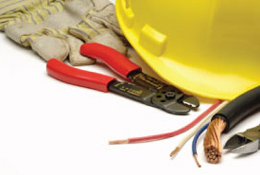Your first priority is choosing the system that’s the right size for your house. Bigger isn’t necessarily better: A unit that’s too big not only costs more to buy, but it will also cost more to operate. Indeed, a system that’s not properly sized wastes energy and wears out equipment sooner because it will go on and off more frequently. And in humid climates, a system that’s the wrong size can turn a home into a mold farm because moisture will form on the overly cold surfaces.
Optimum efficiency is the next most important feature to look for. All A/C units have a Seasonal Energy Efficiency Rating (SEER), which is based on government standards. Units typically range from a moderately efficient SEER of 10 to the most efficient 17. Choose one within that range that’s appropriate for your climate and electric rates.
Also look for a 10-year parts warranty on the compressor, a 5-year parts warranty on all electrical components and a 12-year unconditional warranty against refrigerant leaks. Be sure the entire unit has at least a 1-year parts-and-labor warranty. Finally, remember that even the best unit can be damaged by an incompetent installer. Hire only an experienced, qualified installation company.










